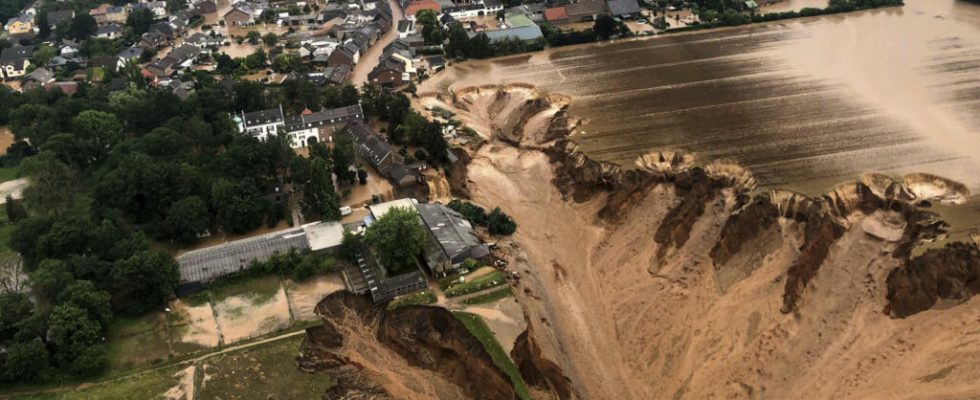Europe is not prepared to face rapidly increasing climate risks. This is the cry of alarm, launched this Monday by the European Environment Agency (EEA), which is publishing its very first assessment on this subject for the entire European continent. These climate risks are multiple and could become catastrophic without urgent and immediate action.
1 min
Heat, droughts, forest fires, floods…In the years to come these extreme phenomena will increasingly threaten ecosystems, food security, access to water, infrastructure, essential services as well as the economy and the European financial system.
“ Continental Europe is warming twice as fast as the global average. If this warming continues without measures to mitigate it, we can expect an increase of up to +7 degrees here in Europe compared to pre-industrial levels. It is therefore urgent to prepare our societies for climate change and the risks associated with it. The policies are there, but the preparation is lacking and the targets and objectives are unclear “, explains Leena Ylä-Mononen, executive director of the European Environment Agency (EEA).
Set priorities
Faced with the rapid increase in climate risks, this report also demonstrates that not all can be limited and that it is therefore urgent to define priorities. “ We cannot cool the oceans. But we can control fishing for example. Our report focuses on these possible levers of action. And it must also fuel societal and political discussions to know which risks are acceptable and which are not. », Points out Hans Martin Füssel, one of its authors.
With this report, the EEA wants to sound the alarm three months before the European elections.
Also listenWhy do economists downplay climate risk?
Economic and financial stability threatened by climate change
If the energy and food security of the European Union, its infrastructure, its ecosystems and water resources as well as the health of its inhabitants are today threatened by global warming, so is economic and financial stability.
“ Between 1980 and 2022, economic losses due to extreme weather and climate events in European Union member states exceeded €650 billion. Less than a fifth of these losses were insured. Extremely costly events have again occurred recently, such as the 2021 floods in Germany, Belgium, and the Netherlands. These costly climate extremes can lead to a reduction in tax revenues, as well as increases in public spending, but also in the cost of credit. “, explains Leena Ylä-Mononen, executive director of the European Environment Agency (EEA).
“ The viability of the European Union (EU) Solidarity Fund itself is already under serious threat, because it has been oversubscribed in recent years by costly events like floods and wildfires. But European real estate and insurance markets also face substantial risks from climate change. Because the intensification of extreme events will increase insurance premiums. And this will further widen the existing protection gap. Low-income households will be the first victims of economic losses. Which will exacerbate their vulnerability “, she continues.
